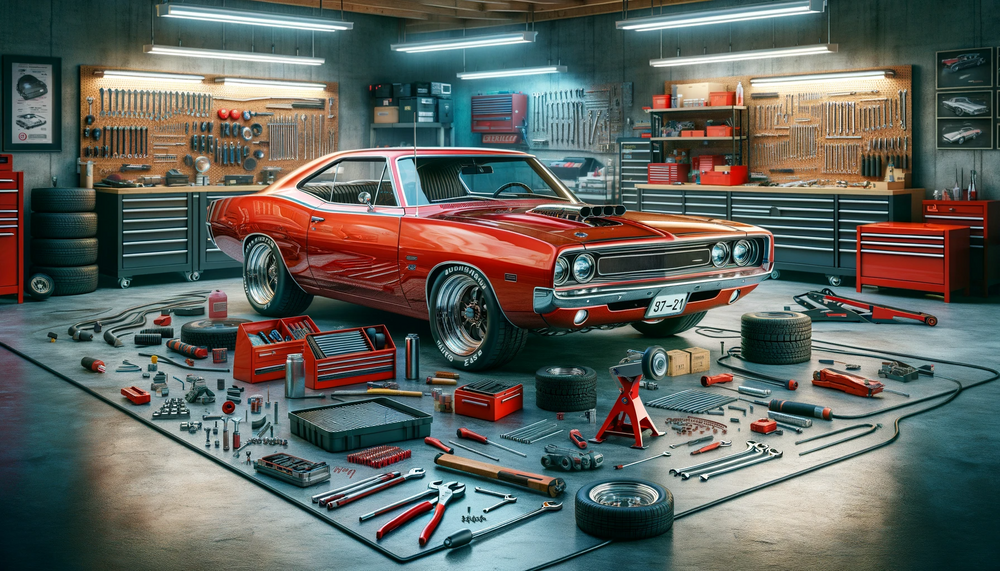Taming the Roar: Sound Deadening Solutions for Premium Sports Cars
The adrenaline rush you get from driving a premium sports car is undoubtedly exhilarating. The raw power and performance of these high-powered automobiles create an unforgettable driving experience. However, sometimes the disruptive roar of the engine, wind noise, and road noise can detract from the comfort and enjoyment of this driving pleasure. As responsive and thrilling as sports cars can be, taming the noise within the cabin is necessary to maintain the premium feel and ensure the sounds stay exhilarating, rather than overwhelming.
To optimize the driving experience in a sports car, it's essential to strike a balance between the distinct sounds of the athletic engine and the serenity and comfort of driving without excessive noise interference. The objective is to create a calm and relaxing atmosphere by reducing cabin noise and vibrations without sacrificing the excitement and performance you expect from a sports car. This is where sound deadening solutions come into play, offering an excellent way to maintain the appealing sound of a high-performance engine while minimizing undesirable noises.
Striking the Perfect Balance in Sports Car Noise Management
The diverse sources of noise in sports cars require a multifaceted approach to sound deadening. Here are several areas of concern that we will address as we explore different sound deadening solutions for sports cars:
- Engine and Exhaust Noise: Sports cars come equipped with powerful engines that can produce louder sounds than regular vehicles. However, it is crucial to identify the fine line between a satisfying engine purr and an overwhelming roar.
- Tire Noise: Due to their performance-oriented design, sports cars often have wider, low-profile, high-performance tires that can generate more noise as they grip the road.
- Wind and Aerodynamic Noise: The sleek design and contours of sports cars can lead to a louder acoustic environment when driving at high speeds by increasing wind and aerodynamic noise.
- Body and Chassis Vibrations: Vibrations from the engine, exhaust, and suspension can transfer to the body and chassis of a sports car, causing rattling or shaking that can disturb the driving experience.
Selecting Sound Deadening Solutions for Sports Cars
To address these unique challenges, it is crucial to select the right sound deadening solutions that target the specific issues in sports cars. Here's a look at some of the options available:
- Vibration Damping Mats: These mats, typically made from butyl rubber, can be applied to various surfaces throughout the sports car to dampen vibrations and reduce the transmission of noise. Ideal areas for these mats include door panels, floor, and trunk spaces.
- Noise Barrier Sheets: These thin yet dense sheets provide an additional layer of protection against airborne noise. When applied to the floor, door panels, or around the wheel wells, they can help block out road, tire, and wind noise.
- Acoustic Foam: Closed-cell acoustic foam can be applied to certain surfaces to absorb various frequencies of noise effectively. This type of material can help to isolate engine noise or to improve the audio quality within the cabin.
- Door Seals and Gasket Upgrades: Upgrading the door seals and gaskets can contribute significantly to reducing wind noise and preventing air leaks, which can be a common issue in sports cars.
Application Tips for Sound Deadening Solutions
When applying sound deadening materials to your sports car, focus on specialized aspects that will allow you to get the most out of these solutions:
- Proper Surface Preparation: Before applying any material, ensure that the surface is clean and free of dirt, grease, or any other contaminants that could affect adhesion.
- Assessing Material Needs: Determine the type and amount of material required by first identifying the most problematic noise sources in your sports car. This will ensure that the sound deadening solutions will be as effective as possible.
- Layering Solutions: Complex noise sources, such as engine noise or tire noise, may require a combination of sound deadening materials to effectively reduce the overall noise level. Sometimes layering materials can provide the best results when combating multiple types of noise.
Benefits of Sound Deadening in Sports Cars
By implementing sound deadening solutions in your sports car, you can achieve numerous advantages:
- Enhance Driving Comfort: Minimizing intrusive noises will make for a more comfortable and tranquil driving experience, allowing you to focus on the road or simply enjoy the ride.
- Improve Audio Quality: A quieter cabin can lead to enhanced audio quality from your car's entertainment system, ensuring that you can enjoy your favorite music or podcasts with optimal sound clarity.
- Preserve Performance Feel: Effective sound deadening will not detract from the performance and excitement offered by a high-powered sports car but will instead create a more enjoyable and comfortable environment for both short and long drives.
Conclusion
There's no denying the thrill of owning and driving a premium sports car. The exhilarating power, sleek design, and remarkable performance make these vehicles truly unique. However, striking the perfect balance between satisfying engine noise and a comfortable cabin atmosphere can be just as vital as the performance itself.
By employing sound deadening solutions to tame the disruptive noise within your sports car, you enhance your driving experience, comfort, and audio quality without sacrificing the excitement you desire. Explore B-Quiet range of premium sound deadening materials to elevate your sports car experience to new heights.













